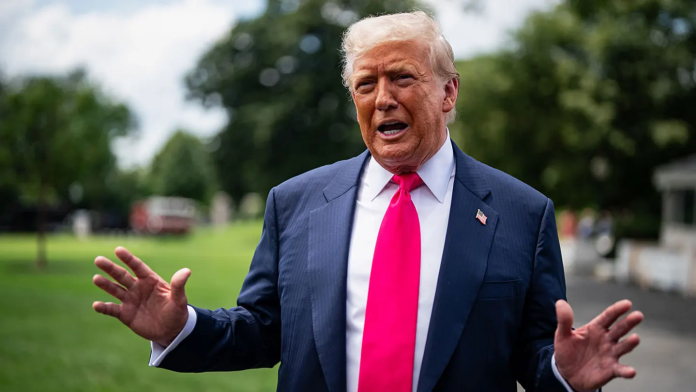President Donald Trump announced on Tuesday that the United States will impose a 19% tariff on goods imported from Indonesia under a newly agreed trade pact, while signalling forthcoming pharmaceutical duties and prompting the European Union to ready substantial countermeasures, according to Reuters.
This agreement with Indonesia, a US trading partner with bilateral trade totalling just under $40 billion in 2024, forms part of Trump’s persistent drive to renegotiate trade terms and reduce the significant US trade deficit.
He later specified on Truth Social that Indonesia had committed to purchasing $15 billion of US energy products, $4.5 billion of American farm products, and 50 Boeing jets, though no timeframe was provided. The pact mirrors a preliminary agreement with Vietnam, featuring a flat tariff roughly double the current 10% baseline on US imports, no levies on US exports to Indonesia, a penalty rate for transhipped Chinese goods via Indonesia, and specific purchase commitments.
Susiwijono Moegiarso, a senior official with Indonesia’s Coordinating Ministry for Economic Affairs, confirmed ongoing preparations via text message to Reuters:
We are preparing a joint statement between US and Indonesia that will explain the size of reciprocal tariff for Indonesia including the tariff deal, non-tariff and commercial arrangements. We will inform [the public] soon.
The agreement arrives ahead of the 1 August deadline, when duties on most US imports are slated to increase significantly. Trump had previously threatened Indonesia with a 32% tariff starting from 1 August.
Escalating tariffs and European countermeasures
The administration’s tariff strategy, described by Yale Budget Lab as pushing the US effective average tariff rate to 20.6%, the highest since 1933, continues to disrupt global trade norms. Trump confirmed that similar tariff letters for “many smaller countries,” suggesting rates “a little over 10%,” would be dispatched soon.
He also announced forthcoming pharmaceutical tariffs, starting with a low tariff rate to allow companies time to shift manufacturing to the US, followed by a “very high tariff” in approximately one year.
Simultaneously, the European Commission is preparing robust retaliation, targeting €72 billion ($84.1 billion) worth of US goods should trade talks collapse. A list seen by Reuters includes Boeing aircraft, bourbon whiskey, cars, chemicals, medical devices, precision equipment, and agricultural products like fruits, vegetables, wine, beer, and spirits valued at €6.35 billion.
This response pre-dates Trump’s recent threat of a 30% EU tariff but addresses existing US duties on cars, car parts, and the 10% baseline tariff. European officials deem Trump’s threatened 30% levy unacceptable, warning it would effectively halt normal trade between these major economies.
Trump acknowledged negotiations with India are progressing “along that same line,” promising US firms greater market access. However, his administration has secured only a limited number of “framework” agreements so far, including with the UK, Vietnam, and an interim deal with China, falling short of initial ambitious targets.
